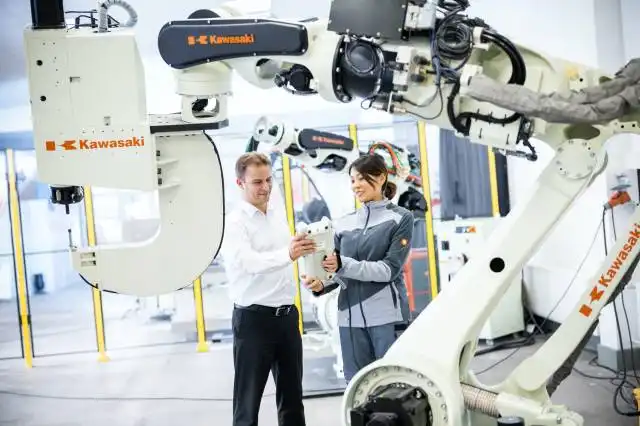Start a Bitcoin Mining Business
Harnessing Digital Gold: Your Adventure into Bitcoin Mining
| Updated


BITCOIN MINING BUSINESS
Welcome to a world teetering on the cutting edge! A Bitcoin Mining Business is not your traditional brick and mortar venture, but a digital gold rush promising heaps of cryptic treasure. In plain speak, you'll be using powerful computers to solve complex algorithms that validate Bitcoin transactions across the globe, earning you Bitcoins in return! It’s like being a digital locksmith for a treasure chest that keeps producing more treasure. How's that for an entrepreneurial adventure?
Jump to Business Plan
RELATED BUSINESS IDEAS
Browse ALL Internet & Technology Startups Business Ideas
Discover Your Perfect Domain
Unlock the door to your online success with our hand-picked selection of premium domain names. Whether you're starting a new venture or rebranding an existing one, the right domain can set the tone for your digital presence. Browse through our curated list, each with its unique potential to enhance your brand's visibility and credibility.
BITCOIN MINING MINI BUSINESS PLAN
This a quick reality check to help you identify the strengths and weaknesses of your business concept before you dive in.
Expected Percent Margin:
- Gross Margin: 15-35%
- Net Profit Margin: 5-15%
Earnings Expectations:
- Daily Earnings: $100 - $250
- Weekly Earnings: $700 - $1750
- Monthly Earnings: $3,000 - $7,500
- Annual Earnings: $36,000 - $90,000
Actions to Hit Those Numbers:
Equipment & Set-up:
- Initial Investment: Depending on the scale, expect to invest $10,000 to $50,000 in mining equipment.
- Hardware: This includes specialized Bitcoin mining rigs, cooling systems, and power supply units.
Cost Management:
- Electricity Costs: High electricity cost can eat into profits. Secure a location/provider with low electricity costs.
Mining Operation:
- Mining Pool: Mining alone is tough. Joining a mining pool will increase your chances of earning bitcoins.
- Maintenance: Regular maintenance of mining rigs to keep them running at optimal efficiency.
- Safety Measures: Implement safety measures to protect your investment from physical damage and cyber threats.
Selling Bitcoin:
- Market Analysis: Thorough analysis of when to retain or sell Bitcoin as per market fluctuations.
Regulations & Legal:
- Licenses and Compliance: Stay compliant with government regulations related to cryptocurrency. Consult with a legal advisor.
These are approximate estimations and can differ depending on location, power costs, Bitcoin price, and individual business strategies. Bitcoin mining has significant risks related to price volatility and regulatory changes. Always consult with a financial advisor for personalized advice.
NOT WHAT YOU HAD IN MIND? Here are more ideas
Browse ALL Internet & Technology Startups Business Ideas
Grab Your Business Website Name
Before you get caught up in the whirlwind of setting up your business, invest in a domain name. It's a small but significant step that lays the foundation for your brand and makes it easier for customers to find and trust you. Just like you wouldn't build a house without securing the land first, don't build a business without securing your domain name.
"Why? Can't that wait?" Here's why it shouldn't
Step 1: Determine if a Bitcoin Mining Business is Right for You
Breakdown of Startup Expenses
Before starting a Bitcoin mining business, it is important to understand the costs associated with the endeavor. This includes the cost of the hardware, software, and any other related expenses. Additionally, the cost of electricity and other resources needed to power the mining process should be taken into account. Furthermore, the cost of any additional staff or personnel needed to manage the business should also be factored in. Finally, it is important to consider the cost of any licenses or permits needed to operate the business.
Breakdown of Ongoing Expenses
In addition to the startup expenses, it is important to consider the ongoing expenses associated with running a Bitcoin mining business. This includes the cost of electricity and other resources needed to power the mining process. Additionally, the cost of any additional staff or personnel needed to manage the business should also be taken into account. Furthermore, the cost of any licenses or permits needed to operate the business should also be considered. Finally, it is important to factor in the cost of any maintenance or repairs needed to keep the mining equipment running.
Examples of Ways to Make Money
There are a variety of ways to make money through a Bitcoin mining business. The most common way is to sell the mined Bitcoin for a profit. Additionally, the mined Bitcoin can be used to purchase goods and services. Furthermore, the mined Bitcoin can be exchanged for other cryptocurrencies or fiat currencies. Finally, the mined Bitcoin can be used to pay for services such as hosting or cloud computing.
Step 2: Name Your Bitcoin Mining Business
When naming your business, it is important to choose a name that is memorable and easy to pronounce. Consider using words that are related to the industry, such as “mining” or “crypto”. Also, make sure that the name is not already taken by another business. It is also a good idea to check with the local government to make sure that the name is not already registered or trademarked. Additionally, you may want to consider registering the name with the local government to ensure that no one else can use it.
Benefits of Naming Your Business
Naming your business can help to create a professional image and make it easier for customers to find you. It can also help to differentiate your business from competitors and make it easier to market your services. Additionally, having a unique name can help to create a sense of identity and loyalty among customers. Finally, having a name that is easy to remember can help to increase brand recognition and make it easier for customers to find you online.
Step 3: Create a Business Plan
Outline Your Goals
Creating a clear set of goals for your Bitcoin mining business is essential for success. You should consider the amount of time and money you are willing to invest, the type of hardware you will need, and the amount of money you hope to make. Additionally, you should consider the amount of risk you are willing to take and the amount of money you are willing to lose. It is important to be realistic when setting goals and to create a plan that is achievable.
Create a Budget
Creating a budget for your Bitcoin mining business is an important step. You should include the cost of the hardware, electricity, and any other expenses associated with running the business. Additionally, you should include a budget for marketing and advertising, as well as any other costs associated with running the business. It is important to be realistic when creating a budget and to make sure that you are able to cover all of your expenses.
Research Your Target Market
Researching your target market is an important step in starting a Bitcoin mining business. You should research the current market trends and the potential customer base. Additionally, you should research the competition and determine what makes your business stand out from the competition. It is important to be knowledgeable about the industry and to understand the needs of your potential customers.
Step 4: Obtain the Necessary Equipment
Types of Mining Equipment
In order to start a Bitcoin mining business, you will need to purchase the necessary equipment. This includes a computer with a specialized graphics card, an ASIC miner, and a cooling system. The graphics card is used to process transactions and the ASIC miner is used to mine Bitcoin. The cooling system is necessary to keep the equipment from overheating.
Cost of Mining Equipment
The cost of mining equipment can vary greatly depending on the type of equipment you choose. Graphics cards can range from a few hundred dollars to thousands of dollars, while ASIC miners can cost anywhere from a few hundred dollars to tens of thousands of dollars. Additionally, cooling systems can cost anywhere from a few hundred dollars to a few thousand dollars. It is important to research the different types of equipment and their costs before investing in any mining equipment.
Step 5: Choose a Mining Pool
Joining a mining pool is an important step for any aspiring Bitcoin miner. A mining pool is a group of miners who combine their computing power to increase the chances of finding a block and receiving a reward. By joining a mining pool, miners share their processing power over a network and split the reward equally according to the amount of work they contributed to the probability of finding a block.
Benefits of Joining a Mining Pool
The main benefit of joining a mining pool is that it increases the chances of earning a reward. By joining a mining pool, miners can combine their resources and increase their chances of finding a block. Additionally, joining a mining pool can help reduce the variance of rewards, as miners will receive a steady stream of rewards instead of receiving a single large reward.
Types of Mining Pools
There are several different types of mining pools available. Some of the most popular types of mining pools include proportional pools, PPLNS pools, and PPS pools. Proportional pools pay miners based on the amount of work they contributed to finding a block. PPLNS pools pay miners based on the last N shares they found. Finally, PPS pools pay miners a fixed amount for each share they find.
Step 6: Secure Your Business
Establish a Legal Entity
It is important to establish a legal entity for your business to protect your personal assets and ensure the business is compliant with all applicable laws and regulations. Depending on the jurisdiction, you may need to register the business as a corporation, limited liability company, or other legal entity. You may also need to obtain a business license or other permits from the local government. Make sure to research the laws and regulations in your area to ensure you are in compliance.
Obtain Necessary Licenses and Permits
In addition to registering the business as a legal entity, you may need to obtain licenses and permits from the local government in order to operate a bitcoin mining business. This could include a business license, a sales tax license, and other permits. Make sure to research the laws and regulations in your area to ensure you are in compliance. Additionally, you may need to obtain a license or permit from the state or federal government, depending on the type of business you are operating. Make sure to research the laws and regulations in your area to ensure you are in compliance.
Step 7: Market Your Business
Developing a marketing plan is essential for any business, but especially for a Bitcoin mining business. A marketing plan should include an analysis of the target market, a plan for reaching that market, and a budget for marketing activities. It should also include a timeline for when the marketing activities will take place.
When it comes to marketing a Bitcoin mining business, social media is a great tool. Social media platforms such as Facebook, Twitter, and Instagram can be used to reach potential customers and build brand recognition. Additionally, social media can be used to post updates about the business, such as new products or services, or any other news related to the business.
Another way to market a Bitcoin mining business is through content marketing. Content marketing involves creating content that is relevant to the target market and then sharing it on various platforms. This could include blog posts, videos, or podcasts. Content marketing can be used to build relationships with potential customers and to increase brand awareness.
Finally, it is important to have a website for the business. A website can be used to showcase the business and its services, as well as to provide potential customers with information about the business. Additionally, a website can be used to collect customer information, such as email addresses, which can be used for email marketing.
Step 8: Manage Your Business
Creating a record keeping system is essential for any business, and it is especially important for a Bitcoin mining business. A record keeping system should include a ledger for tracking all transactions, a budget for tracking expenses, and a system for tracking profits and losses. This system should be updated regularly to ensure accuracy. Additionally, it is important to create a system for tracking customer information, such as contact information and payment information.
Monitoring the performance of your business is also important. This includes tracking the number of customers, the amount of revenue generated, and the number of transactions. Additionally, it is important to track the amount of Bitcoin mined and the amount of electricity used. This information can be used to determine the profitability of the business and identify areas for improvement. Additionally, it is important to track the performance of the mining hardware, such as the hash rate and the temperature of the mining rigs. This information can be used to identify any potential problems with the mining hardware and to determine when it needs to be replaced.
Step 9: Stay Up to Date
It is important to stay up to date with the latest changes in the Bitcoin mining industry. This includes researching new technologies, such as new mining hardware, software, and algorithms. Additionally, staying informed on the current regulations and laws regarding Bitcoin mining is essential. Keeping up with the latest news and trends in the industry can also help to stay ahead of the competition.
Monitor Changes in the Bitcoin Mining Industry
It is important to monitor changes in the Bitcoin mining industry to ensure that the business remains competitive. This includes researching new mining hardware, software, and algorithms that could improve the efficiency of mining. Additionally, staying informed on the current regulations and laws regarding Bitcoin mining is essential to ensure that the business is compliant. Keeping up with the latest news and trends in the industry can also help to stay ahead of the competition.
Research New Technologies
It is important to research new technologies that could improve the efficiency of mining. This includes researching new mining hardware, software, and algorithms. Additionally, researching new technologies can help to stay ahead of the competition. It is also important to research the current regulations and laws regarding Bitcoin mining to ensure that the business is compliant. Keeping up with the latest news and trends in the industry can also help to stay ahead of the competition.
EXPLORE MORE CATEGORIES
Browse ALL Business Idea Categories
TAKE THE NEXT STEPS











